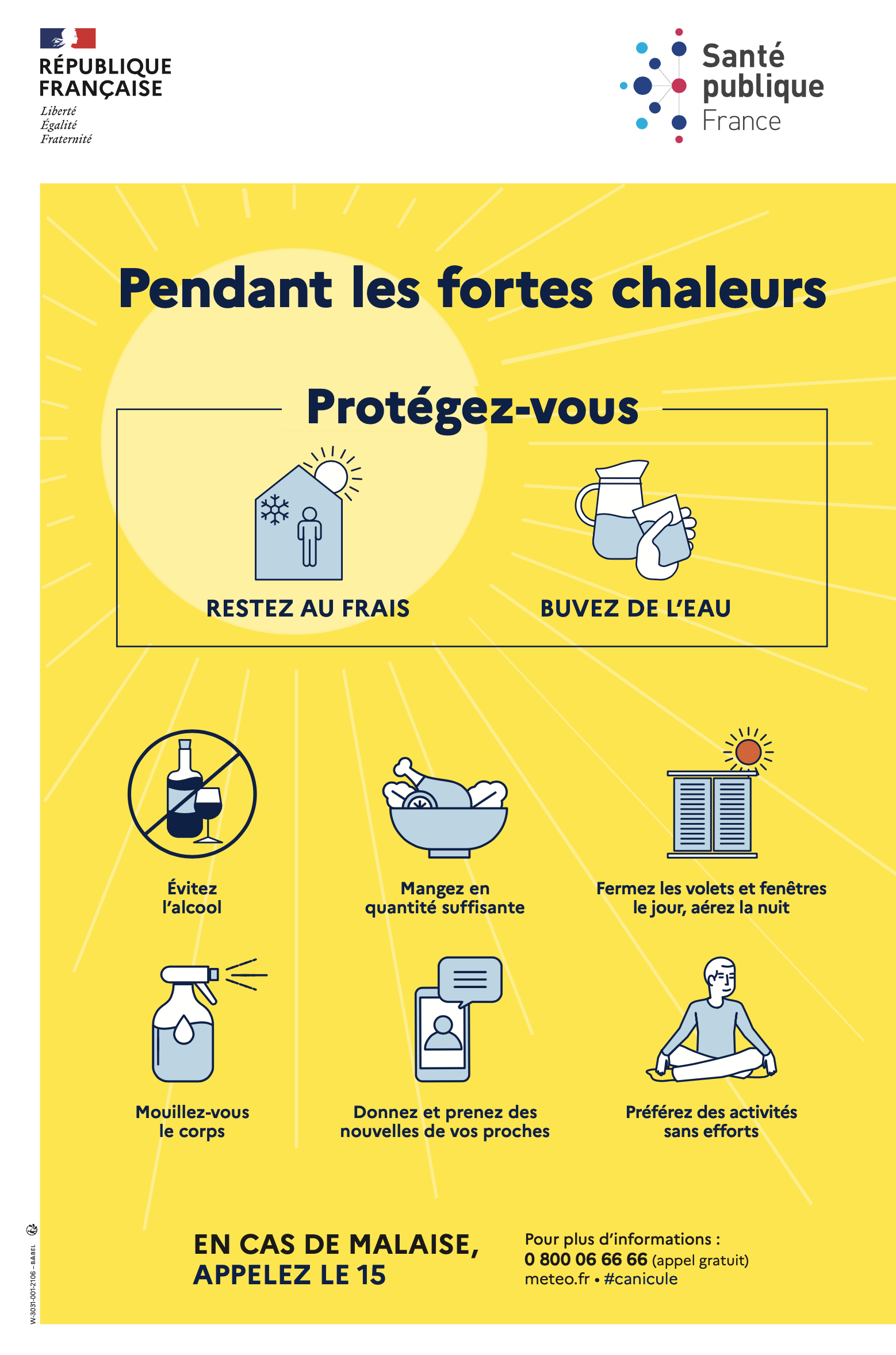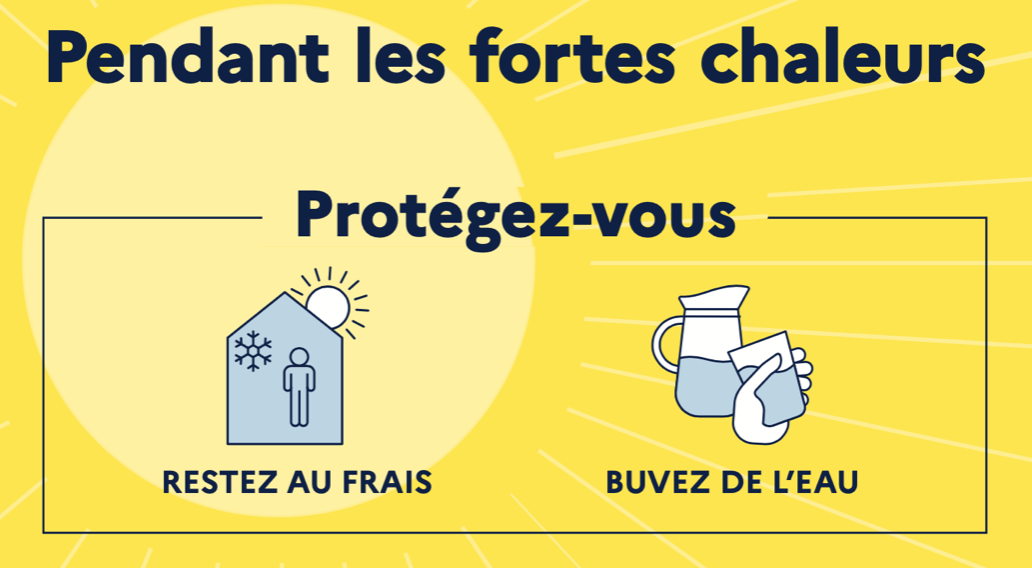Heatwave recommendations: Drink water, keep cool, close shutters and windows, eat enough food, avoid alcohol....
The term heatwave "is a generic term used to designate a period during which temperatures may pose a health risk to the population.
It covers the following situations: ![]() The heat peak : intense heat of short duration (one or two days) presenting a health risk for vulnerable or overexposed populations, in particular as a result of their working conditions and physical activity; it may be associated with the yellow meteorological vigilance level.
The heat peak : intense heat of short duration (one or two days) presenting a health risk for vulnerable or overexposed populations, in particular as a result of their working conditions and physical activity; it may be associated with the yellow meteorological vigilance level. ![]() Persistent heat : high temperatures (IBM [1] These situations constitute a health risk for vulnerable or overexposed populations, particularly as a result of their working conditions and physical activity. It may be associated with the yellow weather alert level.
Persistent heat : high temperatures (IBM [1] These situations constitute a health risk for vulnerable or overexposed populations, particularly as a result of their working conditions and physical activity. It may be associated with the yellow weather alert level. ![]() The heatwave : a period of intense heat during which the IBM reaches or exceeds the departmental thresholds for three consecutive days and nights and is likely to constitute a health risk, particularly for vulnerable or overexposed populations; it is associated with the orange weather alert level.
The heatwave : a period of intense heat during which the IBM reaches or exceeds the departmental thresholds for three consecutive days and nights and is likely to constitute a health risk, particularly for vulnerable or overexposed populations; it is associated with the orange weather alert level. ![]() Extreme heatwave: A heatwave of exceptional duration, intensity and geographical extent, with a major impact not only on health but also on society; it is associated with the red weather alert level.
Extreme heatwave: A heatwave of exceptional duration, intensity and geographical extent, with a major impact not only on health but also on society; it is associated with the red weather alert level.
Heat has an immediate effect on the body, from the very first rise in temperature: the impact of heat on health is not limited to extreme phenomena.
When exposed to heat, the human body activates thermoregulatory mechanisms to compensate for the rise in temperature (sweating, increased blood flow to the skin through dilation of the cutaneous vessels, etc.). However, these thermoregulatory mechanisms can be overwhelmed and heat-related illnesses can occur, the main ones being headaches, nausea, muscle cramps and dehydration. The most serious risk is heat stroke, which can lead to death.
The risks to your health can start as early as the first few days of hot weather.
Accidents can be avoided by taking simple steps. You need to be prepared BEFORE the first signs of physical suffering, even if these signs seem insignificant.
Heatwave: adopt the right reflexes
![]() If you feel unwell, call 15
If you feel unwell, call 15
![]() Consult the recommendations for people in hot weather
Consult the recommendations for people in hot weather

